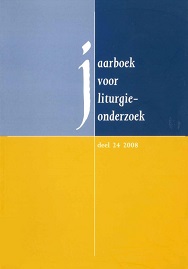Heeft ritueel dan toch betekenis?
Abstract
Staal’s thesis that ritual has no meaning has generated a lot of debate, as the theory runs against the everyday experience that people do attribute a lot of meaning to ritual. Many other authors have argued that ritual is primarily self-referential. However, rituals are recognizable over cultural and geographical boundaries, recognizable as ritual and as significant. This is what I call the ritual paradox. The solution of this paradox resides in the distinction between information and meaning, in this article called the distinction between message and meaning. Though ritual indeed has no intrinsic message people do attribute meaning on two levels: the self-referential meaning and the hermeneutic or exegetic meaning. Both are constructed on acts without intrinsic information, a tour de force our species, homo significans, is extremely proficient in. Where does this meaning stem from? The elements of ritual closely resemble everyday action and interaction, hence the meaning of ritual is derived from the lived experience of everyday life, but in a counter-intuitive form: actions in ritual are changed, but in a certain way and to a limited extent. Ritual consists of recognizable, ‘normal’ actions which have been rendered unusual and counter-intuitive, comprehensible because slightly strange, thus creating a virtualized world. Thus, the very absence of an implicit message offers a window for the participant to construct his own meaning of the ritual, i.e. to attribute meaning to an information-free act.


